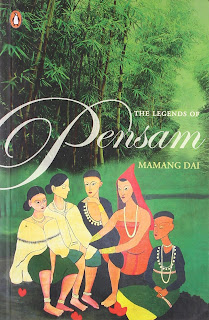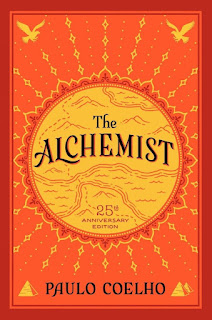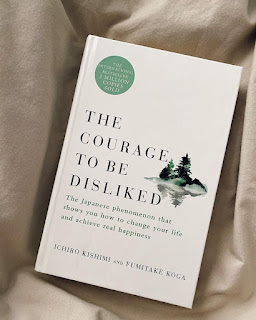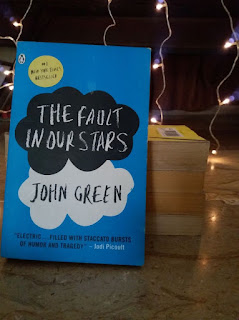Best Urdu novels - ReadersHub
Best urdu novels by urdu writers
The beauty of your face by Sahar mustafa
 |
| The beauty of your face by sahar mustafa |
This book is a debut novel of prize winning short story pen Sahar Mustafa.
Intertwining once and present, this books looks into thr life of afaf, whose family has escaped from Palestine. The jotting is sublime for such a complex plot filled with varied feelings and timelines.
At the onset, the books appear to be about hate crime as portrayed in a firing in all girls Muslim academy by a white American, but it's way further than that. It details the struggle of a culturally equivocal Palestinian woman, her religious growth in light of difficulties she faced in nonage and majority.
Sahar has done brilliant job in drawing a line between terrorist and Muslims. She also has impeccably invested Arabic felicitations, expressions, name of certain dishes and effects, which added a flavour to the story line.
The family tree by sairish hussain
 |
| The family tree by sairish hussain |
The Family Tree is a story of the broken, fierce yet vulnerable Amjad, Zahra and Saahil as they essay to find their peace in the small world they've erected in England after Neelam, Amjad's woman and Zahra and Saahil's mama passes down during parturition.
The story is set in a span of 30 times and how the incident of one night changes the life of everyone around them ever.
The author captures the life of a Muslim British family pre9/11 and post9/11. It's a treat to watch the intricate jotting by Hussain that captures the pain, the horselaugh and the joy of the book that you feel connected and one feels that they tête-à-tête know the characters.
The Family Tree isn't just the bond of a family but how a family crumbles, gets lost and find it's way back keeping in mind of what is passing around them and the fermentation they face within each other.
Sairish introduces every character veritably easily and you feel connected to the character because of the way their small complications are described.
The book focuses on everyone around Saahil and Zahra and points out the generational experience a lot of the youthful generation faces and you're left to interpret why this happens so.
The socio- profitable and political background of the family also helps in figuring out Amjad, Saahil, Zahra and Ammi's life.
This family story can be a story of any family but you get to substantiation the book from the perspective of an Asian, Pakistani, Muslim British family and how inspite of effects turning upside down for them overnight they strive to live together and face what comes their way together.
Sairish's jotting not only connects you to the characters but also weaves magic with her tropological jotting which you reverberate with beautifully.
The blue between sky and water by Susan abulhawa
 |
| The blue between sky and water by Susan abulhawa |
The Blue Between Sky and Water is a meter which traverses perennially through four generations of a Palestinian family from the vill of Beit Daras. The narrative starts with the mama of three who befriends a djinn Sulayman that always stays by her side or at least when his presence is needed. Mariam, her youthful son with mismatched eyes, sits by the swash and addresses to an imaginary friend Khaled who teaches her how to write and she's blessed with the quality to godly the unseen by seeing people’s shine. Nazmiyeh, the eldest among her three children, is bodacious and bold who has the moxie to speak of effects Allah forbids and her twists and lewd reflections can make anybody laugh and, at the same time, can leave them red- faced. The food of the family depends on the only son of Hajje Um Mamdouh, who ekes a living working as an apprentice at a beekeeper’s. Though they were ignorant of the brewing tumultuous storm which will shatter their lives ever, the day when townies come to Hajje Um Mamdouh to ask Sulayman for help to discern the intention of Jewish settlers who, for a long time, have abided along with them the djinn admonishes them against the wrong approaching but gives them a glistering stopgap that one day their vill Beit Daras shall rise from the ashes. The day which would dissipate their jocund lives eventually arrives and drags those who survive the genocide committed by Israeli forces including Nazmiyeh and Mamdouh with their consorts to exile camps in Gaza. ultimately, Mamdouh corridor from his family after he leaves the camp and set out for Kuwait against her want and his fate eventually takes him and his family to Amreeka. Although Mariam and her mama die but the djinn, Sulayman, and Mariam’s mate of her imaginary realm, Khaled, noway leaves the family and stays with them for generations to come. Nazmiyeh and her family, Mamdouh, now have grandchildren including Nur, Khaled and Rhet Shel among them. Nur is Mamdouh’s granddaughter and after he dies she gets entangled with her own quandaries at a veritably tender age. She's sexually abused by her stepdad, ignored by her Spanish mama and once she's untangled by Nzinga, an African lady, out of these unconceivable mournings she's made to change her foster home time and again. Meanwhile, in Palestine, Nazmiyeh’s grandchildren, Khaled and Rhet Shel, are living an impenetrable life in a world where there isn't important left to lose. They seek happiness out of anything enjoyable they find from digging whatever little is left in Gaza. The meter of anguish and bliss continues and her fate eventually brings Nur home where she spends rest of her life with Nazmiyeh, her son, Alwan, and the relatives, Khaled and Rhet Shel.
Susan Abulhawa’s The Blue Between Sky and Water is a heart- wrenching narrative which at times is blithesome and it makes you study at the little pleasures on the other side through the thick fog of crosses, sorrows, and misery which Zionists have brought to the Palestinians ever since the day of Nakba. It narrates the story of four generations of a Palestinian family who have been struck with the plight that the occupation carried with it. It left them deprived as the members of their family parted, occasionally shot dead by the Israeli forces and occasionally taken away as captures to be freed only if God punishes the occupiers for their obvious atrocities or brings an end to the occupation. It would be an injustice not to mention the character at the heart of this novel, Khaled, who's named after Mariam’s imaginary friend and is incapacitated. His blinking at the request of his little family Rhet Shel as an blessing or disapprobation for her chores and fancies will melt your heart. The grandmother Nazmiyeh is the most prominent character as she's the one who binds the family together at morasses and she imbues the whole narrative with the tones of matriarchy which at times rescues her son and grandchildren from the surreal humdrum of the occupation and their limited life with recreating chores. This new depicts the life under a siege where whatever little amenities are available are brought from Egypt through coverts and as the story proceeds it becomes palpable that if you're diagnosed with some conditions it’s better to die with it rather than staying auspicious with forlorn stopgap of getting an occasion for treatment outside Gaza. No matter if their life is nothing but a ramshackle despair, they live it with sheer determination to rejoice for every bitty surprise Allah unfolds before them. Nur’s convergence with her Palestinian family reaffirms the noway - ending affection of Palestinians for their motherland anyhow of the place where they live and whatever culture they've ingrained in themselves. Being an American graduate she had better prospects in outside world but her affection for her roots deeply rooted in Palestine induced her to stay with her family in Gaza and help the Palestinians in need. Hers is a character which at times is vulnerable but her palm over all the odds is a surefire especially when Nzinga and Nazmiyeh are by her side.
The novel is flushed with so numerous prominent characters that describing each of them would be painstakingly laborious but it's extremely necessary to reiterate that they all have a unique story to tell as they all bear the scars of occupation and have lived with a myriad of predicaments throughout their life. The Mornings In Jenin author lives up to the anticipation and she deeply penetrates your soul with this fabulous narrative of love, affection, jones
, and mournings.
Morning in jenin by Susan abulhawa
 |
| Mornings in jenin by Susan abulhawa |
A heart wrenching tale of the travails of Palestinians who have been driven out of their own land and now have to live in Israeli enthralled home.
This is a perspective from the Palestinian lens. An stranger who wishes to get a balanced perspective of the conflict would do well to read another story but from the lens of an Israeli.
The book does punctuate the universal verity that every battle indeed if it's a battle for survival( as it was for the Israelis) throws up numerous innocent victims.
Against the loveless world by Susan abulhawa
 |
| Against the loveless world by Susan abulhawa |
" Against the Loveless World" a book grounded on the 3rd generation of Palestinians. The story of this book starts in captivity where our promoter, Nahr was locked . Her family was a Palestine exile and she was born and raised in Kuwait. So the story of this book follows this character Nahr. She married a wrong person and ever landed in harlotry.
Susane Abulhawa must be a awful women because in this book she empowered the character in a implausible way. Nahr, isn't a women she's fighting for her freedom rather she's searching for the true love to whom she can partake all her pains because there's no hapiness for her to get in this loveless world.
The language is stupendous and it's easy.
It's must read book because it's filled with great value of life. It shows us how the pain will be and the meaning for the word suffer. The story breaks our heart whenever the character loses her cherished bone .
I recommend this book for all. Before starting I allowed this book will be filled with histories and data about Palestine and Israel, it was the only thing dissatisfied me rather it filled so important of information about Palestinians. Go for it.
Sparks like stars by Nadia Hashimi
Sparks like Stars is a well- written story of a little girl called Sitara who was born to a distinguished and political family in Afghanistan. Her father was a high ranking functionary working for the chairman. She has been brought up with boons and has seen the stylish. She was a part of Afghanistan in the 1970’s when is was progressive. In 1978, a communist achievement assassinates the chairman and her entire family, while she managesto escape. All those whom she trusted turned their tails on her. How will a ten time old girl survive especially when she's the only substantiation to this butchery? Well, she does.
It's her story of survival from Afghanistan to America and back to Afghanistan, a place that was her home and a country that she grew up and knew to be normal. She noway got over the violence of that night and she does n’t know what happed to the bodies of her family. Her life is burdened with her history. She wants to go back to her country and bring check to the strife within her. When she returns to a Taliban governed Afghanistan, she ca n’t believe that it's the same place that she had left times agone .
It’s a fabulous novel with the descriptions so pictorial that you read the book like a movie. I especially loved all the exchanges between Sitara and her father who has the most amazing wise studies. I cleaved to his words. Some absolutely beautiful quotations. An inconceivable story, Nadia Hashimi has done a fantastic job of getting you fused to her book.
Rumours of spring by Farah basir
 |
| Rumours of spring by Farah basir |
In a simple language, the narrator shares with the compendiums the life in Kashmir; how misery and suffering came so integrated in the lives of the common people of such a beautifulplace.How a visit to an aunt's house or a visit to a salon turned out to be life changing gests makes for an intriguing read but also a sad memorial how the story isn't solely her gests but of the several in theregion.Having read the new one feels slightly further compassionate towards our fellow countrymen who are still continuing to go through the same agony indeed now.
The curfewed nights by basharat peer
The book is based on biases and presents a one-sided narrative. It is tilted towards justifying the militants and presenting the problem of Kashmiri separatists as the problem of common Kashmiri people. From the beginning itself, the book presents and advocates the separatist agenda. The author keeps on justifying that the presence of military is oppressive for Kashmiris but he fails to explain the crimes committed by the militants trained and armed in Pakistan to wage war against India and disrupting peace in Kashmir.
Although the author tried his best to portray the harmony between both the Kashmiri Hindus and Muslims before 1990, but fails in hiding his real feelings. Here are a few excerpts from the book,
“The religious divide was visible only on the days India and Pakistan played cricket. Muslims supported the Pakistani cricket team; the Pandits were for India. Yet the tensions, which were partly class-based, never simmered into sectarian violence. But things fell apart after the eruption of armed conflict.”
"We did not relate to the symbols of Indian nationalism—the flag, the national anthem, the cricket team. We followed every cricket match India and Pakistan played but we never cheered for the Indian team. If India played Pakistan, we supported Pakistan; if India played the West Indies, we supported the West Indies; if India played England, we supported England."
There is also mention of kidnapping of Rubaiya seeds, daughter of then home minister, by JKLF. JKLF demanded the release of their jailed friends for releasing her. The book also accepts the involvement of Pakistan in spreading militancy in the region. Here is an excerpt:
“That winter, too, busloads of Kashmiri youth went to border towns and crossed over to Pakistan and Pakistan-administered Kashmir for arms training. They returned as militants carrying Kalashnikovs, hand grenades, light machine guns, and rocket launchers issued by Pakistan.”
The author has written that Yasin Malik led the militants of JKLF but at the same time is unhappy when he is arrested. He finds it ruthless when the India Government responded. It is an irony that according to the author, training of Kashmiri youths as terrorist is fine but when the military fights back, it is a torture and ruthless step.Most importantly, he failed to mention why the need arised to deploy army in Kashmir. The book mostly focuses on portraying how the army spoilt their lives but he failed to realise that it is the militancy that gave rise to this situation.
The author only glamourises and idolises militants and terrorism and the book is solely meant to present the problem of Kashmir as problem of Kashmiri Muslims who supported the militants and separatists ideas.
The book also fails to showcase the plight of the Kashmiri Pandits who had to leave the valley overnight. He has very lightly touched the exodus and mass killings of Kashmiri Pandits.
The narration style is very plain and flat. It presents anecdotes and snippets of experiences that the author gathered from various people. It jumps from one incident to another. This hinders the flow of narration which is not smooth and presents the story in bits and pieces.
Although the book gives a good insight of the lifestyle of Kashmir, it presents a one-sided view, the viewpoint of people who supported separatists. The book shows a lot of hate towards India. The book is misleading the vulnerable youth of Kashmir and spreads false propaganda. Though the last few chapters are mellowed down but I would have loved if he would have explained the problems faced by common peace loving Kashmiri people due to militant insurgency, irrespective of their religion.
This book is grounded on impulses and presents a one- sided narrative. It's listed towards justifying the zealots and presenting the problem of Kashmiri secessionists as the problem of common Kashmiri people. From the beginning itself, the book presents and advocates the separatist docket. The author keeps on justifying that the presence of service is rough for Kashmiris but he fails to explain the crimes committed by the zealots trained and armed in Pakistan to wage war against India and dismembering peace in Kashmir.
Although the author tried his stylish to portray the harmony between both the Kashmiri Hindus and Muslims before 1990, but fails in hiding his real passions. Then are a many extracts from the book,
“ The religious peak was visible only on the days India and Pakistan played justice. Muslims supported the Pakistani justice platoon; the Pandits were for India. Yet the pressures, which were incompletely class- grounded, noway coddled into insular violence. But effects fell piecemeal after the eruption of fortified conflict. ”
" We didn't relate to the symbols of Indian nationalism — the flag, the public hymn, the justice platoon. We followed every justice match India and Pakistan played but we noway cheered for the Indianteam.However, we supported Pakistan; if India played the West Indies, we supported the West Indies; if India played England, If India played Pakistan."
There's also citation of hijacking of Rubaiya seeds, son of also home minister, by JKLF. JKLF demanded the release of their jugged musketeers for releasing her. The book also accepts the involvement of Pakistan in spreading bellicosity in the region. Then's an extract
“ That downtime, too, busloads of Kashmiri youth went to border municipalities and crossed over to Pakistan and Pakistan- administered Kashmir for arms training. They returned as zealots carrying Kalashnikovs, hand grenades, light machine ordnance, and rocket launchers issued by Pakistan. ”
The author has written that Yasin Malik led the zealots of JKLF but at the same time is unhappy when he's arrested. He finds it ruthless when the India Government responded. It's an irony that according to the author, training of Kashmiri youths as terrorist is fine but when the service fights back, it's a torture and ruthlessstep.Most importantly, he failed to mention why the need arised to emplace army in Kashmir. The book substantially focuses on portraying how the army spoilt their lives but he failed to realise that it's the bellicosity that gave rise to this situation.
The author only glamourises and idolises zealots and terrorism and the book is solely meant to present the problem of Kashmir as problem of Kashmiri Muslims who supported the zealots and secessionists ideas.
The book also fails to showcase the plight of the Kashmiri Pandits who had to leave the vale overnight. He has veritably smoothly touched the outpour and mass killings of Kashmiri Pandits.
The history style is veritably plain and flat. It presents stories and particles of gests that the author gathered from colorful people. It jumps from one incident to another. This hinders the inflow of history which isn't smooth and presents the story in bits and pieces.
Although the book gives a good sapience of the life of Kashmir, it presents a one- sided view, the standpoint of people who supported secessionists. The book shows a lot of hate towards India. The book is misleading the vulnerable youth of Kashmir and spreads false propaganda. Though the last many chapters are mellowed down but I would have loved if he'd have explained the problems faced by common peace loving Kashmiri people due to militant insurrection, irrespective of their religion.












Comments
Post a Comment